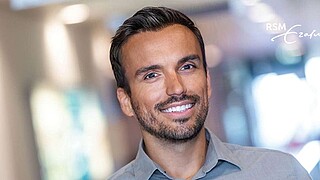Dr Vlachopoulos’ research subjects are online education, talent development, and digital transformation – a true match with the emphases in the Active Youth Hub project, which will work on developing active citizenship, and entrepreneurial and digital skills for young people in the three countries.
Handbook for youth workers
The two-year project started with a successful launch meeting on 10 February in Rotterdam, which initiated the team and established the methodology for the creation of a handbook for youth workers, the project’s website, and a dissemination strategy.
The handbook is one of four desired intellectual outcomes for the Active Youth Hub, and will contain evidence-informed resources, good practices and methodologies for developing digital skills, entrepreneurial skills and active citizenship.
Supporting employability
Dr Vlachopoulos explains why the consortium will be focusing on these three countries in particular: “Greece and Romania appear very low in the rankings at EU level for the ways that they support employability of young people, including those with disadvantages. In the Netherlands, the situation is significantly better, but, still, the labour market faces several challenges. RSM can provide the consortium with high quality outputs to address this issue,” he said.
The consortium aims to create a digital escape room for the development of entrepreneurial skills and active citizenship; a card game for the development entrepreneurial skills and active citizenship; and a report with policy recommendations on improving employability of young people through the development of digital, entrepreneurial skills and active citizenship.
Other members of the consortium are:
- Stimmuli for Social Change, a social enterprise in Greece
- YouthFully Yours, a youth association in Greece
- International Debate Education Association (IDEA) in the Netherlands
- Friends of Children in Romania, an NGO in Romania
- Ofensiva Tinerilor, a youth association in Romania.
The grant will allow the consortium to develop the four intellectual outputs, organise three multiplier events – one in each country – to disseminate the project’s activities, and to host a concluding conference in two years’ time.

